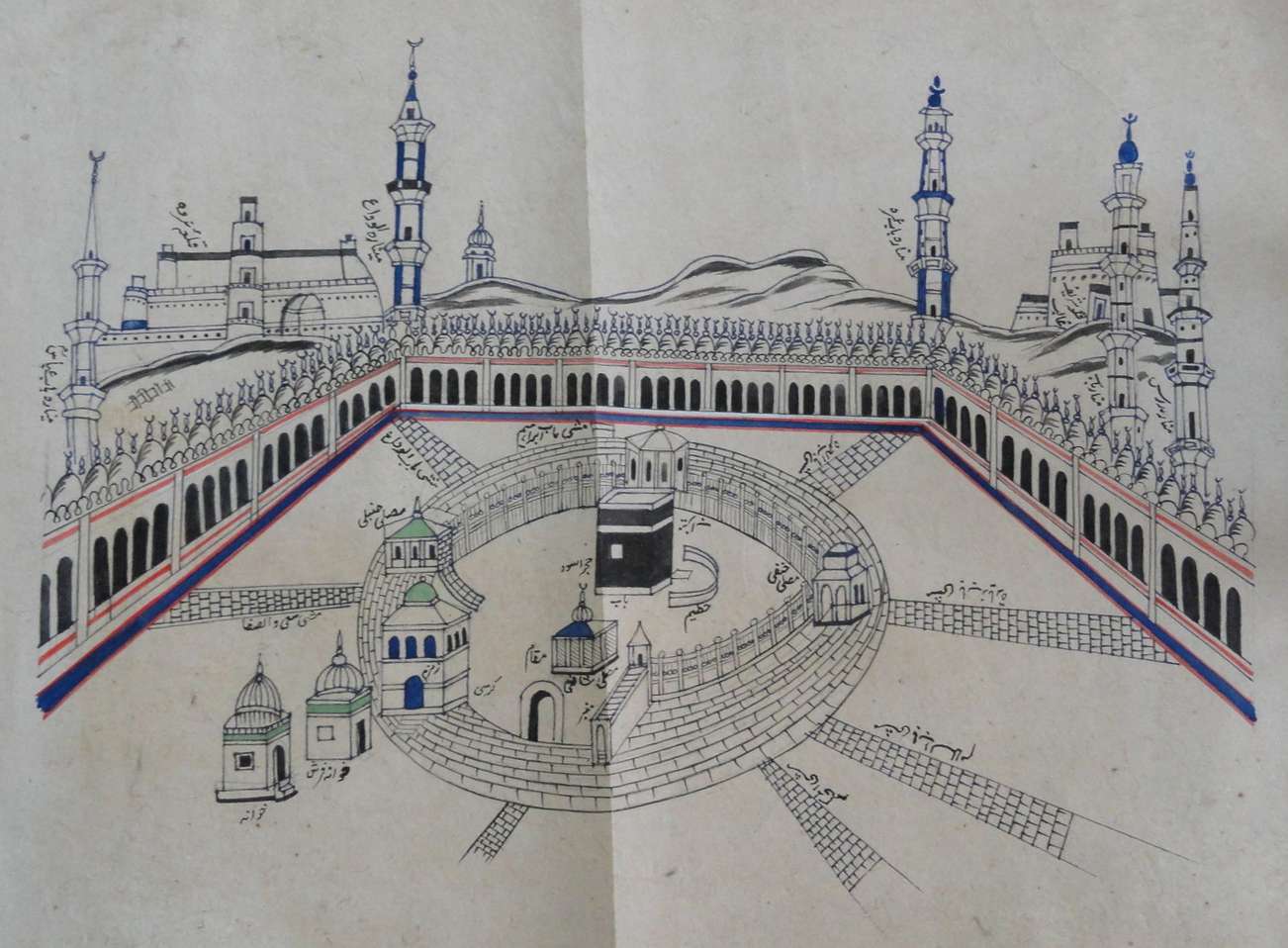FWP:
SETS
BONDAGE: {1,5}
ISLAMIC: {10,2}
Azad's anecdote above seemed so appropriate to the mood of this verse that I couldn't resist including it.
This is a rather simple and straightforward verse. The key to its impact is the lover's self-contradictory status: he doesn't deny being in a state of servitude, in fact he emphasizes it-- bandagī meñ bhī , 'even in bondage' or 'in bondage too'. Yet he also emphasizes his being āzādah , 'free', and ḳhvud-bīñ , literally 'self-regarding', to a degree that certainly makes him a very dubious 'servant'. If God doesn't meet him halfway and offer an opened door, he simply turns around and goes back; he's not one to beg and plead, or hang about humbly and try to slip in later. In short, the speaker announces that he has treated God somewhat the way Ghalib treated Mr. Thomason when he turned back from the famous Delhi College employment interview.
The vuh is here an emphatic colloquial expression, more like aisā (*Grammar*).
Baqir points out that the door of the Ka'bah is in fact never closed, and that the verse serves to remind us of this. For more verses that explicitly refer to the Ka'bah, consult the Names index. Baqir's point may be well-taken, and a pious reader might even come away with such an impression. But the grammar of the verse clearly emphasizes a change of state, 'did not become open' [vā nah huʾā], rather than a steady-state 'was not [in a state of being] open' [vā nah thā]. In other words, the speaker seems to demand that the door should become open especially for him, just at the point when he arrives. Ghalib rarely endorses any kind of conventional piety; {161,4} brings it all down to a question of t̤abīʿat , of 'temperament'.
Other verses about 'self-regardingness': {6,13x}; {12,4x}; {15,17x}; {208,6}.
Compare Mir's even more drastic solution to the same problem: M{1679,8}:
dar pah ḥaram ke kushūd nahīñ to dair meñ jā kar kāfir ho
qashqah kheñcho pothī paṛho zunnār gale se bañdhāʾo tum
[if at the door of the Ka'bah there's no opening, then go sit in a temple and become an infidel,
put on a forehead-mark, read a holy-book, have a sacred-thread tied around your neck]

Azad:
In 1842 the English government decided to reorganize the affairs of Delhi College. Thomason Sahib, who for a number of years had been Lieutenant Governor of the Northwestern Province, was Secretary at that time. He came to Delhi to interview the teachers. And just as there was a teacher of Arabic at one hundred rupees a month, he wished for there to be such a teacher of Persian also. People told him the names of some accomplished ones. Mirza's name too was among these. Mirza Sahib came, as he had been invited to do. Announcement was made to the Sahib. Mirza Sahib came out of his palanquin, and stayed there waiting for the Secretary Sahib to come, according to long custom, and receive him. When neither the one went in, nor the other came out, and quite some time passed, then the Secretary Sahib asked his doorkeeper about it. That man came out again and asked, 'Why don’t you come in?' Mirza Sahib said, 'The Sahib has not come out to receive me. How can I go in?' The doorkeeper again went and reported.
The Sahib came outside and said, 'When you come to the governor’s court in your capacity as a nobleman, then you will receive the customary honor. But at the present time you have come for employment. You are not entitled to this honor.' Mirza Sahib said, 'I consider government service a reason for additional honor, not something in which I would lose my ancestral honor also!' The Sahib said, 'I am bound by regulations.' Mirza Sahib took his leave and came away.
==this trans.: Pritchett and Faruqi, pp. 487-88
==Hali's version, which he attributes to Azad: Yadgar-e Ghalib, pp. 28-29
==a trans. of Hali's version: Russell and Islam, pp. 62-63